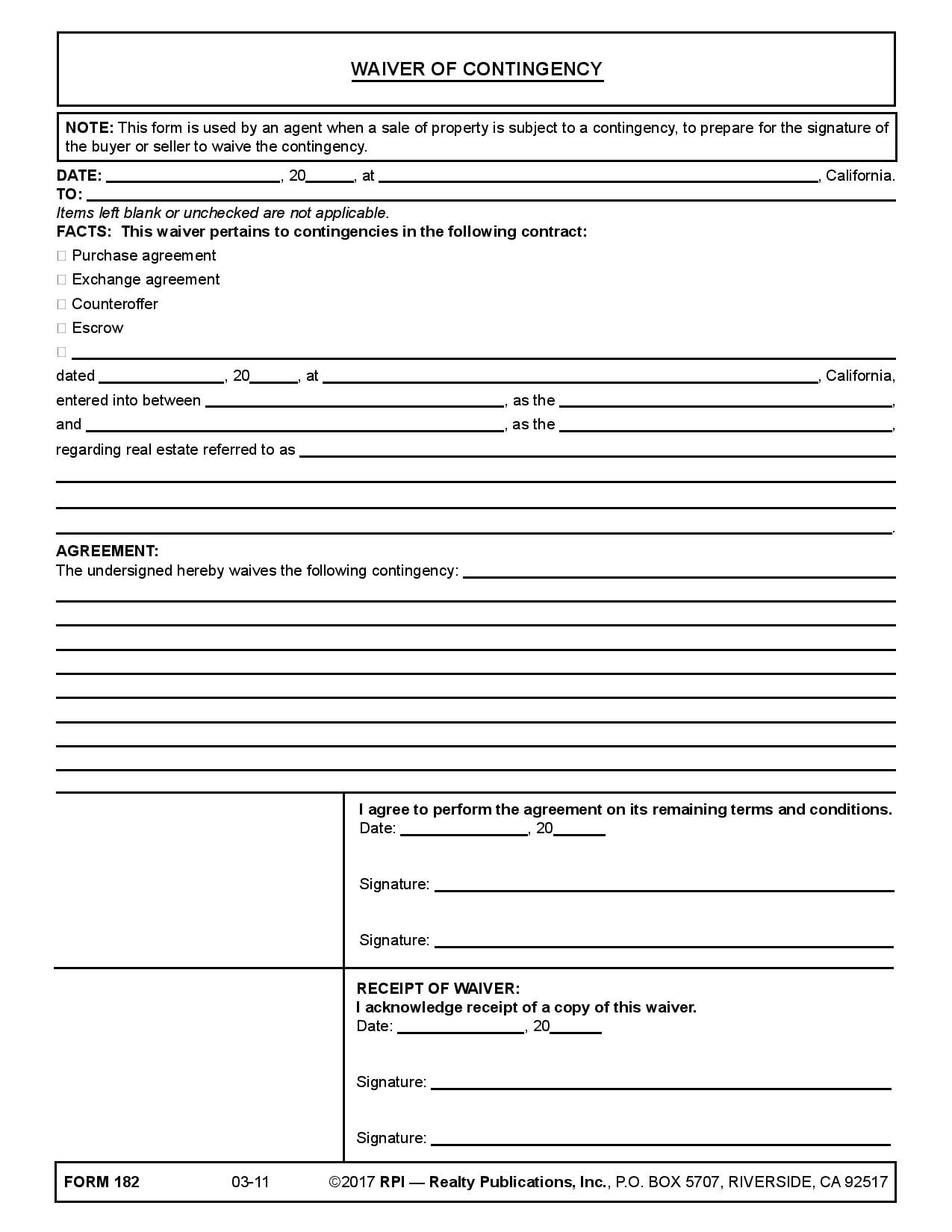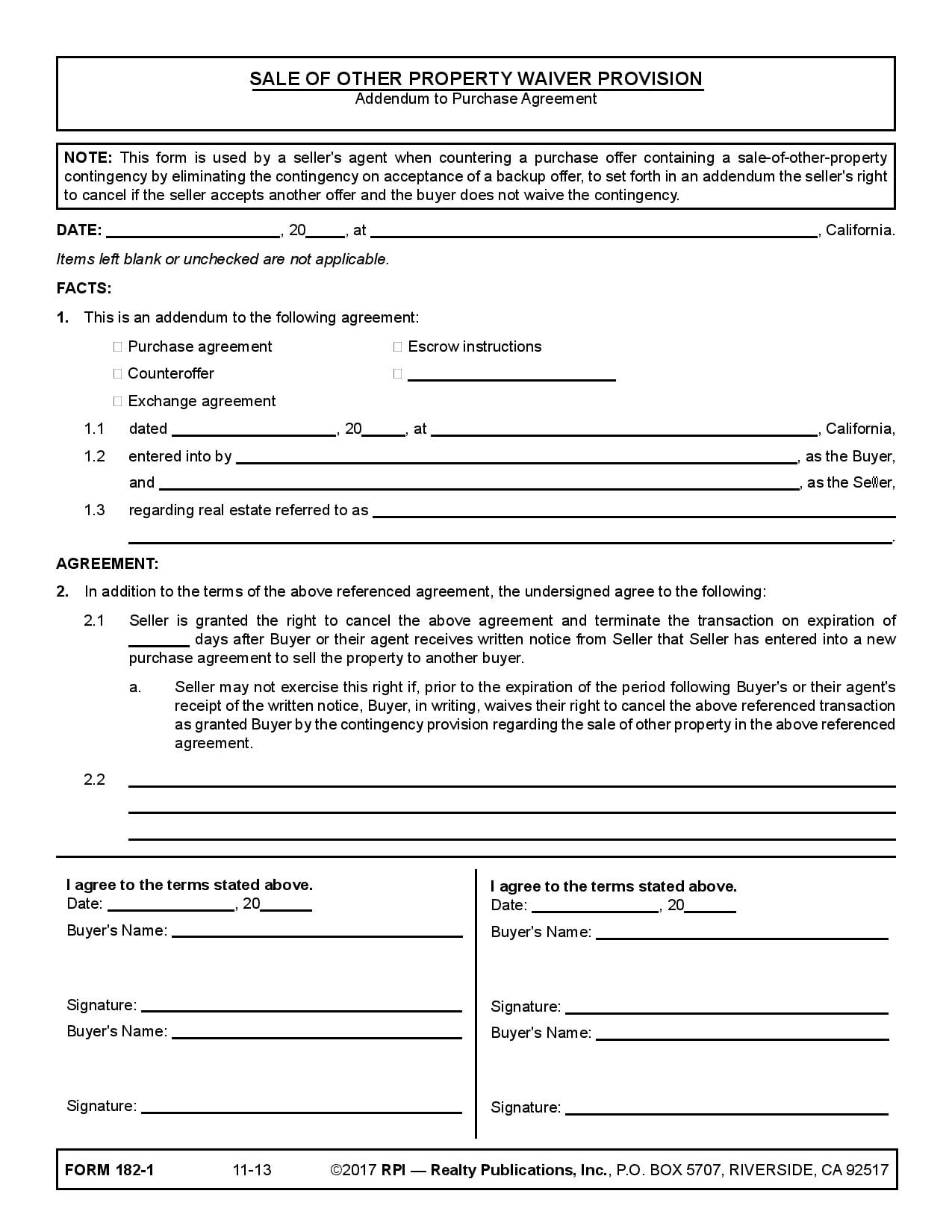What are contingency provisions?
Buyers and sellers frequently include provisions in purchase agreements to place conditions on their rights and obligations to close escrow, called contingencies.
Contingencies describe an event or condition which the buyer or seller believes needs to occur or be approved before the purchase agreement transaction can proceed to closing. These contingencies need to be eliminated before a binding purchase agreement becomes enforceable, obligating the buyer and seller to perform to close the transaction.
Contingency provisions in a purchase agreement grant the authority, when used for good cause, to terminate the buyer’s obligation to pay the purchase price or the seller’s obligation to deliver title.
The right to cancel a transaction granted by a contingency provision in the purchase agreement may be eliminated by either:
- satisfaction of the contingency provision by the occurrence of an event or by a transaction participant’s approval of the conditions contained in information, data, documents or a report; or
- waiver or expiration of the contingency provision.
On the occurrence or approval as described in a contingency provision, the condition is said to be satisfied, such as the buyer’s receipt of a mortgage commitment or approval of delayed disclosures.
If a condition is not satisfied, the participant authorized or benefitting from the contingency may:
- cancel the transaction by serving the other participant with a Notice of Cancellation [See RPI Form 183];
- waive the contingency and proceed with the transaction by notifying the other participant the contingency has been waived; or
- allow the expiration of the time period for cancellation to run. [See RPI Form 182]
Similarly, the Sale of Other Property Waiver Provision – Addendum to a Purchase Agreement is used by a seller’s agent when countering a purchase offer containing a sale-of-other-property contingency by eliminating the contingency on acceptance of a backup offer, to set forth in an addendum the seller’s right to cancel if the seller accepts another offer and the buyer does not waive the contingency. [See RPI Form 182-1]
Satisfaction or cancellation
If the event or approval called for in the contingency provision does not happen, the participant with the right to cancel may waive the contingency provision or allow it to expire and proceed to closing. If the contingency provision is not waived or allowed to expire on failure of the event or approval to occur, the purchase agreement transaction may be terminated by the participant with the right to cancel.
The participant with the right to cancel may only exercise their right if they have a reasonable basis for the cancellation, called good cause. If a reasonable basis exists, they may cancel and avoid the other participant’s enforcement of the purchase agreement.
To exercise the right to cancel, a notice of cancellation is delivered to the other participant during the period for timely exercise of the right to cancel and in the manner set out in the cancellation provision. [See RPI Form 150 §11.5]
Contingency provisions have been tagged with such colorful titles as “weasel clauses,” “escape clauses,” or “back-door provisions.” These titles suggest a misunderstanding of the ability to use contingency provisions to cancel and avoid buying or selling the property when the participant wishing to cancel merely has a change of heart about proceeding with the transaction. Objectivity is required.
This article was originally published in August 2013.
















